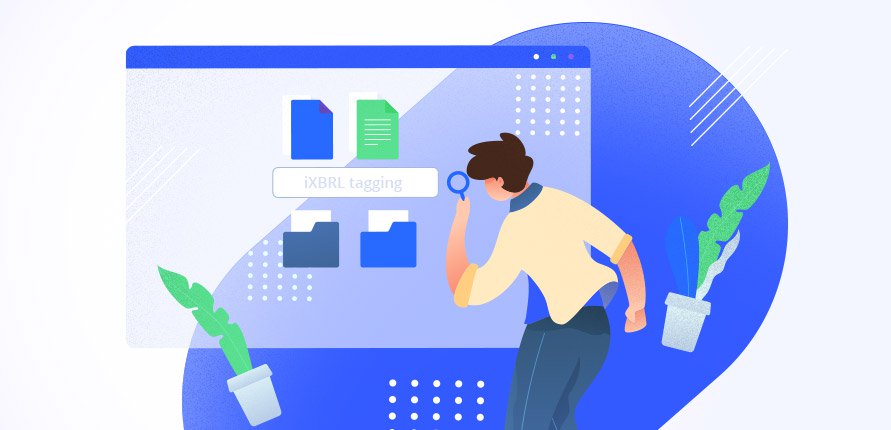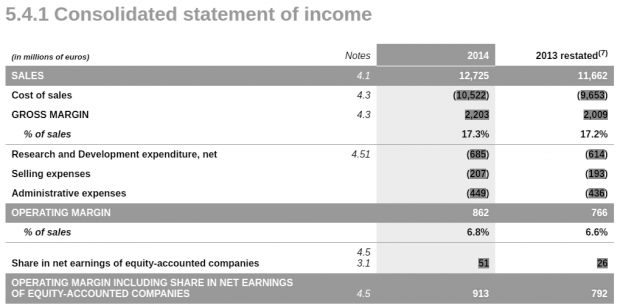
One of the major leaps in taxation from the technological point of view was the use of iXBRL tagging in filing corporation tax returns with effect from 1 April 2011. Most of the companies are required to file their corporation tax returns, financial accounts, and computations for HMRC in iXBRL format only. iXBRL enables joint filing service for submitting their accounts, computations, and tax return of small and micro-entities with relatively straightforward financial affairs to both HMRC and Companies House.
What is iXBRL?
Inline XBRL basically adds XBRL tags into HTML formatted documents that keeps the human-readable HTML format of the document the same when viewed in a web browser. It keeps the author’s layout of the document intact such that the recipient receives the same view of the document as originally created by the author at the same time enabling machines to read and process the same data.

The iXBRL or inline XBRL, allows a single document to provide both human-readable and machine-readable data. The key feature of iXBRL tagging is that it facilitates automated handling of the financial data.
If data is iXBRL tagged, then the XBRL data can be extracted using XBRL software for automated data consumption or to provide interactive features when viewing the report.
Benefits of iXBRL
- Efficient handling of data - The tagging of accounts helps HMRC in efficient and speedy handling of data since there would be cut down on manual processes and paper handling.
- Reduced chances of error - The data validation keeps a check on the data entered and issues an alert whenever wrong data is put into the fields. Further, the readability feature of the report makes it possible for the accountant to share it with the client so that it can be checked by the client before it is submitted to HMRC.
- Automation - iXBRL tagging facilitates the recognition of data filled into the document. It makes the selection, analysis, and storing of data easier. It even facilitates the exchange of data within computers and its presentation based on the need of the user. Once the data is entered into the iXBRL tagged document, it can be read by the machines for processing by intelligently recognising the embedded XBRL tags.
- Upgrading internal operations - The usage of iXBRL helps the businesses to streamline their business processes. They can choose to automate their methods of collecting, assembling, monitoring, and reporting business data across their whole operation.
- Easy analysis - If data is in XBRL or iXBRL format then it aids the external users (like banks, investors, etc.) of financial information to compare and analyse data quickly. This will be possible as the data from all the sources would be embedded with XBRL tags which would assist machines in performing analytical operations and share the result.
- Reduced efforts - It requires feeding data into the system only once. The financial data needs to be entered only once into the accounting software, the accounts and tax return can be filed at a single click from the software if it is fully iXBRL compliant.
- Focus on risky areas - It will increase HMRC’s efficiency by avoiding unnecessary queries and help focus resources on businesses where the compliance risks are greatest.
iXBRL reporting by various businesses

- iXBRL reporting by various businesses
For the small companies with financial data relatively simple and straightforward, HMRC provides service to file company accounts and tax returns online. This service automatically converts the accounts to iXBRL format. Companies need to register for HMRC Corporation Tax Online Service to submit their returns online whatever service or software they choose to use. Upon registration, an activation code is posted that can take up to 7 days to arrive. - Companies using final accounts production and tax preparation software
The companies should ensure that the accounting software they are using generates the accounts and computations both in iXBRL. If the computation and accounting have been outsourced, then the companies need to ensure that the accounts and computations are either produced in iXBRL only, otherwise converted to iXBRL on a later date. HMRC has published a list of commercial software suppliers who provide services to produce iXBRL accounts and computations. Click here to see the list. - Companies creating accounts or computations through manual processes
A number of companies keep their financial data, accounts, and reports manually over spreadsheets, word documents, or similar text-based software. These companies have two options:- Integrate final accounts preparation software into their systems and processes
- Convert data into iXBRL format
- Using iXBRL conversion software to convert the traditional accounts to iXBRL format. The process will require efforts to identify and apply correct tags. HMRC has published a list of conversion software that can be used by the companies. Some conversion software allows the creation of templates which helps tagging to be reused in subsequent reports. Similarly, some templates can be used across a range of subsidiaries in the group.
- Companies will need to register to use the HMRC Corporation Tax Online Service of traditional accounts to iXBRL to an external organization.
Companies responsibilities for iXBRL filing

All companies need to ensure that they comply with all the requirements for iXBRL filing.
- Companies using final accounts production or tax preparation software to file in iXBRL: They should make sure that the software they are using is adequate to handle the type and scope of data in their reports.
- Companies using external managed tagging services to produce iXBRL accounts and computations: They are responsible for ensuring that such iXBRL accounts and computations can be incorporated with the online CT600 return form for submission.
- Companies using conversion software to convert the accounts and computations data into iXBRL: They shall be responsible for ensuring that the conversion software complies with HMRC online filing requirements.
Taxonomies
Taxonomy works in a similar way as a dictionary, for iXBRL filing. As per XBRL International - taxonomies “define the specific tags that are used for individual items of data (such as “net profit”), their attributes, and their interrelationships.” The accounts taxonomies can be downloaded from the XBRL UK website and the Corporation Tax taxonomy from the Gov.uk website.












